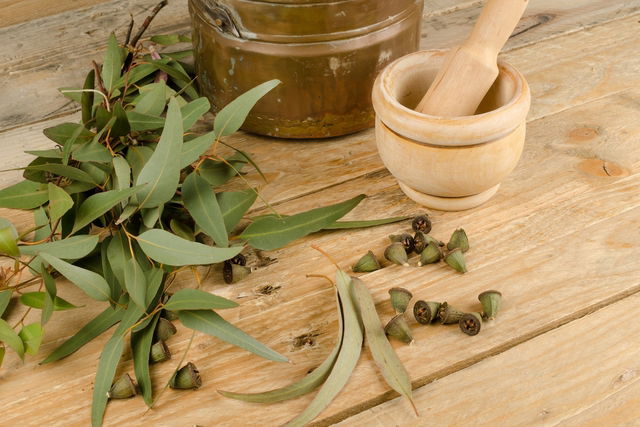Eucalyptus tea: what it is used for and how to prepare
Eucalyptus is a tree that can reach up to 90 meters high, it has small flowers and capsule-shaped fruits, it is popularly known to help fight various respiratory infections due to its expectorant and antimicrobial properties.
The leaves of this plant can be used to prepare tea, however, it is also possible to extract from them the essential oil, which can be used in vapors for inhalation. The scientific name of eucalyptus is Eucalyptus globulus Labill, and it can be purchased in some supermarkets, municipal markets, natural products stores and pharmacies, since eucalyptus is also found in ready-made syrups and in sachets to prepare an infusion.
Although it is an excellent home remedy to treat respiratory diseases, the inhalation of eucalyptus leaves should not be used in children under 12 years old, since it can cause allergies and difficulty breathing. In addition, preparations with eucalyptus should not be applied on the face of babies, being very important to consult a pediatrician in these cases.

What it is used for
Eucalyptus is a plant popularly used for the treatment of flu, cold, rhinitis, sinusitis, adenitis, tonsillitis, asthma, bronchitis, runny nose, pneumonia, tuberculosis, fever, intestinal parasites, acne, bad breath and muscle pain, due to its medicinal properties, which are:
In addition, the essential oil of eucalyptus, extracted from the leaves, contains cineol which has balsamic and antiseptic properties, being widely used in the treatment of bronchitis and to remove phlegm from the airways. See other home remedies for bronchitis.
How to use eucalyptus
The most commonly used part of eucalyptus is the crushed leaf and can be used in different ways, from inhalation to tea.
Eucalyptus leaves can also be found in combination with other medicinal plants in the form of tea bags or home remedies in health food stores.
How to prepare eucalyptus tea
Eucalyptus tea is widely used to relieve symptoms of flu and colds, as well as helping to remove accumulated lung secretions during bronchitis.
Ingredients
How to prepare
To make the tea, add the chopped eucalyptus leaves in a cup and cover with boiling water. Let it warm, strain and drink it twice a day.
Side effects of eucalyptus
The main side effects of eucalyptus are related to its excessive use and include dermatitis, difficulty breathing and tachycardia. Some of the studies also report that they can cause drowsiness and hyperactivity.
Eucalyptus oil tincture can increase the action of the liver, causing the effect of some medications to be reduced, therefore, if the person uses any medication daily, it is necessary to consult a doctor to know whether or not to use eucalyptus.
Contraindications
Eucalyptus is contraindicated in case of allergy to this plant, during pregnancy and in people who have gallbladder problems and liver disease.
Inhalations of the leaves of this plant, should not be used in children under 12 years, as it can cause allergies and difficulty breathing, and the tincture should only be used by adults, due to the high alcohol content. Likewise, eucalyptus preparations should not be applied on the face, mainly on the nose of babies, as it may cause skin allergies.
According to some studies, eucalyptus essential oil can also stimulate the development of epileptic seizures and therefore should be used with caution in people suffering from epilepsy.
Comments
Post a Comment